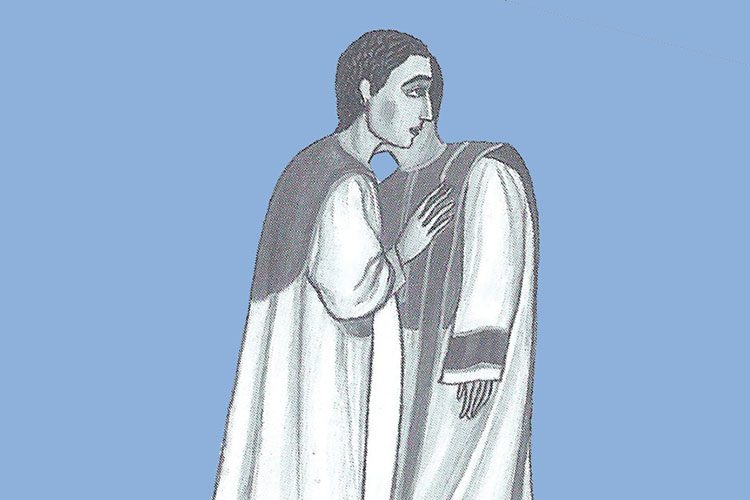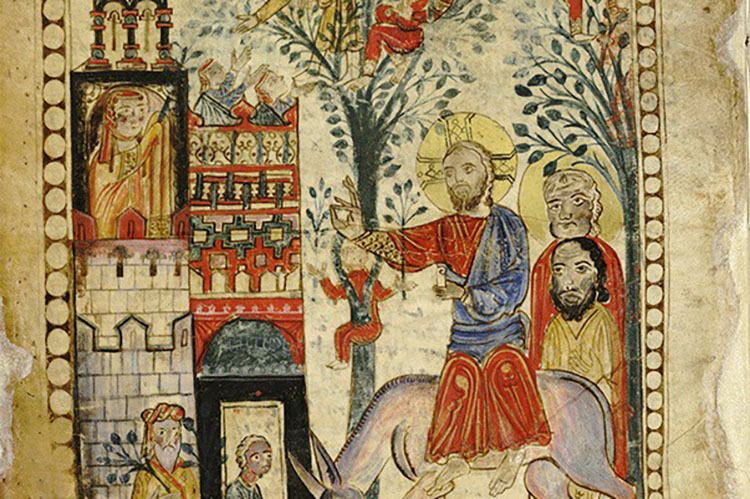
The ritual that we call the “Kiss of Peace” is an ancient Christian practice mentioned frequently in the Bible [Romans 16:16, 1 Corinthians 16:20, 2 Corinthians 13:12, 1 Thessalonians 5:25, 1 Peter 5:14], It is apparent that the earliest Christians had the custom of greeting one another “with, a holy kiss” as an acknowledgment of their kinship in Jesus Christ. In those days to be a Christian was a capital offense. Those initially few men and women who accepted the Christian faith in baptism knew that they were likely to face persecution and even martyrdom. In such an environment, they were especially conscious of the Christian grace, given in the sacrament of baptism, to become children of God. The Gospel according, to John says, “To all who received him, who believed in his name, he gave power to become children of God; who were born, not of blood nor of the will of the flesh nor of the will of man, but of God” [John 1:12-33] The Kiss of Peace was a reassuring reminder that they were brothers and sisters, members of a divine and eternal family.
Very early the Kiss of Peace was introduced at the conclusion of Christian worship services. By the end of the fourth century it increasingly came to be associated with Jesus’ warning in the Gospel: “If you are offering your gift at the altar, and there remember that your brother has something against you, leave your gift there before the altar and go; first be reconciled to your brother, and then come and offer your gift” [Matthew 5:23-24J. This is why, in the Badarak, as well as in the Sunday services of other Christian traditions, the Kiss of Peace is offered at the conclusion of the Liturgy of the Word, before the Eucharist proper (the second part of the Divine Liturgy that concerns Holy Communion).
The meaning of the Kiss of Peace is exquisitely expressed in the Armenian hymn that accompanies it, “Kreesdos ee mech mer haydnetsav” (“Christ has been revealed in our midst”). In many ways the Kiss of Peace summarizes the entire meaning of the Badarak and the meaning of out Christian faith: God is here among us in Jesus Christ, in Holy Communion, to fill us with His divine love so that we may be inspired and empowered to love one another; to forgive one another; to serve one another; and to make sacrifices for one another. As we grow in the recognition of God’s love for us, and as we are increasingly able truly to love one another without judgment or condemnation, then “love spread[s] over us all,” true peace takes root, the church truly becomes “one soul” and we give thanks and praise to God our Father in heaven.
When we greet those around us with the Kiss of Peace during the Badarak, we should pledge to reach out ever more in humility, forgiveness and love to everyone: to those in our family, in our church community, in our place of work or study, in our neighborhood, in Armenia, in the United States, and in the world.

